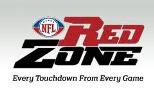NFL Thriving on TV; Fantasy Says ‘You’re Welcome’
Tuesday, December 21st, 2010 Ask anyone in the fantasy sports industry if our games help the real sports on which they rely, and you’ll hear “Of course.”
Ask anyone in the fantasy sports industry if our games help the real sports on which they rely, and you’ll hear “Of course.”
It’s a no-brainer, really. The nature of fantasy inherently adds value to the actual sport, necessarily assigning more meaning to games and meaning to more games. It’s important to growing the overall status of fantasy sports and their marketing power, however, to make it a brainer as well, and this NFL season appears to be presenting the strongest evidence yet.
According to a weekend feature from the Los Angeles Times, 2010 is shaping up to deliver the best TV ratings in the league’s history, and the NFL can address thank-you cards to fantasy folks.
Nielsen ratings declare that 35 TV programs had garnered 20 million viewers or more in the fall season heading into the weekend. Twenty-six of those were NFL games. (And for those curmudgeons who still think fantasy a waste of time, seven of the other nine were episodes of Dancing with the Stars … which, by the way, makes sure to add an NFL player to the cast every season.)
The story features a women’s fantasy football league from California and offers some anecdotal evidence of fantasy’s impact, such as the previously casual NFL fan who estimates that her viewing has tripled since she started playing fantasy football.
Beyond that, though, there is harder evidence as well …
- According to CBS’ David Poltrack, ratings for non-home-team games in 2007 sat at 58 percent of those for home-team games. That climbed to 62 percent in 2008 and 63 percent in 2009.
- 70 percent of respondents to an ESPN survey of fantasy football players said that fantasy led them to watch NFL games they might not have otherwise.
- Viewership at the start of the third quarter of the Patriots’ recent Monday Night Football blowout of the Jets dipped just 2 percent from the game-opening audience, despite New England’s 24-3 halftime lead in a game it won 45-3.
The home team vs. non-home team data isn’t necessarily driven by fantasy players, but Poltrack’s hypothesis that fantasy play leads to more viewership of out-of-town games certainly makes sense, and the trend coincides with fantasy’s rise.
The past few years have seemed to produce more understanding of this nature, and we should expect to continue seeing studies and surveys such as those mentioned here that help to map the impact of fantasy games and the behavior of its players. Hey, maybe we’re not that far from seeing Dr. Kim Beason on Outside the Lines.

